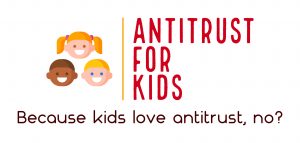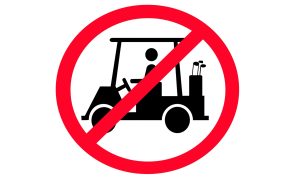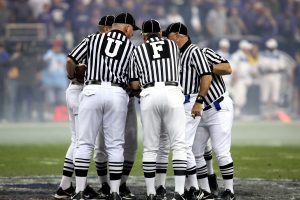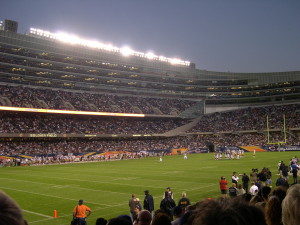Authors: Luke Hasskamp & Molly Donovan
NBA action is FAN-TASTIC! Unless, of course, the action is one brought by the Department of Justice in a different kind of court. But that may be exactly where the NBA finds itself: the DOJ is reportedly investigating the professional basketball association for alleged antitrust violations. The NBA’s alleged anticompetitive conduct targeted Big3, a competitive basketball league founded by Ice Cube and entertainment executive Jeff Kwatinetz (with Clyde Drexler serving as commissioner!). That conduct included allegedly pressuring team owners, current NBA players, and advertisers and partner television networks not to do business with Big3.
Big3 is an aptly named 12-team, 3-on-3 league mostly comprised of retired NBA players. Teams play an eight-week season, followed by a two-week, four-team playoff, all during the NBA’s off-season. In 2023, the Big3’s regular season was held once a week in Chicago, Dallas, Brooklyn, Memphis, Miami, Boston, Charlotte, and Detroit, and the finals were held in London, England.
We’ve previously written about antitrust laws in the sports arena, including the infamous antitrust exemption in professional baseball. But baseball is an anomaly in that regard, as all other professional sports in the United States are subject to federal antitrust laws. (Professional football, baseball, basketball, and hockey are statutorily exempted from antitrust laws for negotiating television broadcast rights. See 15 U.S.C. § 1291.) Thus, antitrust liability is fair game for the NBA.
And, as this story broke, another recent antitrust case jumped to mind: that involving the PGA Tour and LIV Golf, when the PGA Tour faced antitrust scrutiny for its decision to suspend players who played for a would-be competitor league. The NBA dispute has many parallels to the PGA Tour case, though with some notable differences too, even though most details are not public.
To consider the legal nuts and bolts a bit, let’s look at what a Section 1 and Section 2 claim against the NBA might look like.
Section 1 of the Sherman Act – Unlawful Agreements
Federal antitrust laws (Section 1 of the Sherman Act) make it unlawful for two or more actors to enter agreements (conspiracies) to restrain trade or competition in the market. Classic examples include price fixing and group boycotts.
Here, the leading legal theory may be the group boycott. Under that theory, the NBA would have entered into one or more agreements with other entities to thwart Big3’s emergence and growth in the market.
One of the improper agreements reported here is between the NBA and the owners of each of its 30 teams, with the NBA allegedly instructing owners to not invest in the fledgling competitor. (An agreement between a sports league and its individual teams can implicate Section 1 of the Sherman Act, as was the theory in the recently-settled litigation against MLB involving the contraction of minor league teams.) The reports also suggest that the NBA may have persuaded sponsors and other business partners to agree to avoid doing business with Big3.
Section 2 of the Sherman Act – Monopolization
Federal antitrust laws also make it illegal for a monopolist to preserve its dominant market position through anticompetitive conduct. And this section of the Sherman Act does not require collusion with another party—a single actor can incur liability.
Here, the NBA sure looks like a monopoly (or monopsony). It’s the dominant actor in the professional basketball market in the United States, with revenues exceeding $10 billion per year. (While we generally assume that the relevant geographic market is the United States, even if we were to consider the entire world, the NBA may still be a monopolist.) In professional basketball, there is no rival to the NBA. If you are an elite basketball player in the United States, the NBA is pretty much the only place to play (even if you include the Big3).
But the NBA’s status as a monopoly is not unlawful on its own. It’s fine for a business to emerge as a dominant market player through lawful means, such as through “a superior product, business acumen, or historic accident.” United States v. Grinnell Corp., 384 U.S. 563, 57071 (1966).
Instead, to implicate Section 2 of the Sherman Act, the NBA must have engaged in some “exclusionary” or “anticompetitive” conduct to protect its monopoly and harm competition—that is something other than superior product, business acumen, or historic accident. Examples of exclusionary conduct include tying, exclusive dealing, predatory pricing, defrauding regulators or consumers, or engaging in coercive conduct, such as threatening customers with retaliation if they choose to do business with the would-be competitor in order to stifle the competitor’s growth in the market.
 The Antitrust Attorney Blog
The Antitrust Attorney Blog











